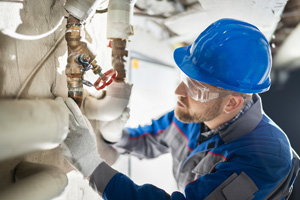 The Importance of Commercial Plumbing Maintenance
The Importance of Commercial Plumbing Maintenance
For businesses, a well-functioning plumbing system is crucial for daily operations. Whether you own a restaurant, office building, or retail space, commercial plumbing maintenance helps prevent unexpected breakdowns, costly repairs, and potential health hazards. A proactive maintenance plan ensures water flows properly, drainage systems remain clear, and all plumbing components work efficiently.
In this guide, we’ll cover key commercial plumbing maintenance tips, common issues, and when to call a professional.
Why Regular Plumbing Maintenance Matters
Ignoring plumbing issues in a commercial building can lead to expensive repairs, water damage, and business disruptions. Some key reasons to prioritize maintenance include:
✔ Preventing Costly Repairs – Small leaks or minor clogs can turn into major plumbing disasters if left unchecked.
✔ Ensuring Health & Safety Compliance – Leaks, backflow, and poor drainage can lead to health code violations.
✔ Extending Equipment Lifespan – Regular upkeep helps pipes, water heaters, and fixtures last longer.
✔ Minimizing Business Downtime – Plumbing failures can shut down operations, leading to revenue loss.
Essential Commercial Plumbing Maintenance Checklist
To keep your plumbing system in top shape, follow this maintenance routine:
1. Inspect for Leaks Regularly
Water leaks in pipes, faucets, and toilets can waste thousands of gallons annually, increasing utility costs. Check for:
- Dripping faucets and running toilets
- Water stains on ceilings and walls
- Unexplained increases in water bills
Tip: Install water leak sensors to detect hidden leaks before they cause damage.
2. Keep Drains & Sewer Lines Clear
Blocked drains can lead to foul odors, slow drainage, and even sewage backups. Prevent clogs by:
- Using drain strainers to catch debris
- Scheduling hydro jetting or drain cleaning services annually
- Avoiding grease, food waste, and non-flushable items in sinks and toilets
3. Maintain Water Heaters & Boilers
Hot water is essential for many businesses, from restaurants to hotels. Regular maintenance includes:
- Flushing the tank to remove sediment buildup
- Checking temperature settings to prevent overheating
- Inspecting for leaks, rust, or unusual noises
4. Test Backflow Prevention Devices
Backflow prevention devices keep contaminated water from entering your clean water supply. Annual testing ensures compliance with local regulations and prevents health risks.
5. Inspect & Maintain Restroom Fixtures
High-traffic restrooms require regular upkeep to prevent toilet overflows, broken sinks, and malfunctioning urinals. Key tasks include:
- Checking flushing mechanisms for efficiency
- Repairing or replacing faulty faucets
- Ensuring proper ventilation to prevent mold growth
6. Monitor Water Pressure
Low water pressure can impact daily operations, while high pressure can damage pipes. A pressure regulator ensures stable water flow throughout your building.
Signs You Need a Professional Commercial Plumber
Some plumbing issues require immediate professional attention. Call us if you notice:
Frequent drain backups or multiple slow drains
Unusual water discoloration or foul odors
Water heater failure affecting your business operations
Sewer gas smells indicating a possible pipe break
Schedule Routine Commercial Plumbing Maintenance
Regular maintenance is the key to avoiding major plumbing emergencies. At Action Plumbing, we provide professional commercial plumbing maintenance services to keep your business running smoothly.
Need expert plumbing service? Contact us today!
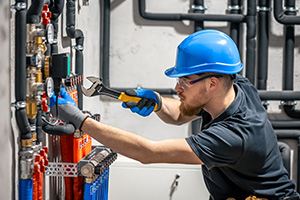 The plumbing industry is a vital part of our daily lives, ensuring safe and reliable water systems in residential, commercial, and industrial settings. Within this field, commercial plumbing jobs represent a specialized niche that focuses on large-scale installations and complex plumbing systems in buildings like hospitals, schools, offices, and shopping centers. As cities expand and businesses grow, the demand for skilled commercial plumbers continues to rise. In this post, we’ll explore what commercial plumbing jobs entail, the skills required, career opportunities, and tips on how to start or advance in this rewarding field.
The plumbing industry is a vital part of our daily lives, ensuring safe and reliable water systems in residential, commercial, and industrial settings. Within this field, commercial plumbing jobs represent a specialized niche that focuses on large-scale installations and complex plumbing systems in buildings like hospitals, schools, offices, and shopping centers. As cities expand and businesses grow, the demand for skilled commercial plumbers continues to rise. In this post, we’ll explore what commercial plumbing jobs entail, the skills required, career opportunities, and tips on how to start or advance in this rewarding field.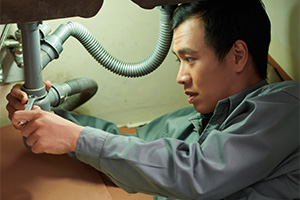 Finding a reliable plumber can feel like a daunting task, especially when you need fast, high-quality service. If you’re looking for the best plumbers in Levittown, PA, look no further than
Finding a reliable plumber can feel like a daunting task, especially when you need fast, high-quality service. If you’re looking for the best plumbers in Levittown, PA, look no further than 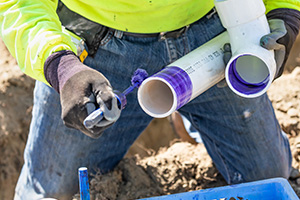 When it comes to beginning any major construction project, proper excavation services are essential. Excavation involves more than simply digging; it requires precision, skill, and the right equipment to prepare a site that supports the safety and stability of structures. From small-scale residential projects to large commercial or industrial builds, choosing a professional excavation team ensures your site is ready for the next phase of construction.
When it comes to beginning any major construction project, proper excavation services are essential. Excavation involves more than simply digging; it requires precision, skill, and the right equipment to prepare a site that supports the safety and stability of structures. From small-scale residential projects to large commercial or industrial builds, choosing a professional excavation team ensures your site is ready for the next phase of construction.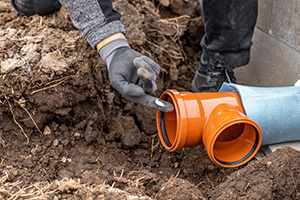 Plumbing issues can be frustrating, especially when the cause of the problem is hidden deep within your pipes. This is where a plumbing camera, also known as a sewer camera or drain camera, comes into play. With advanced technology, plumbing cameras provide a non-invasive way to inspect your plumbing system, helping identify issues before they become costly repairs.
Plumbing issues can be frustrating, especially when the cause of the problem is hidden deep within your pipes. This is where a plumbing camera, also known as a sewer camera or drain camera, comes into play. With advanced technology, plumbing cameras provide a non-invasive way to inspect your plumbing system, helping identify issues before they become costly repairs.